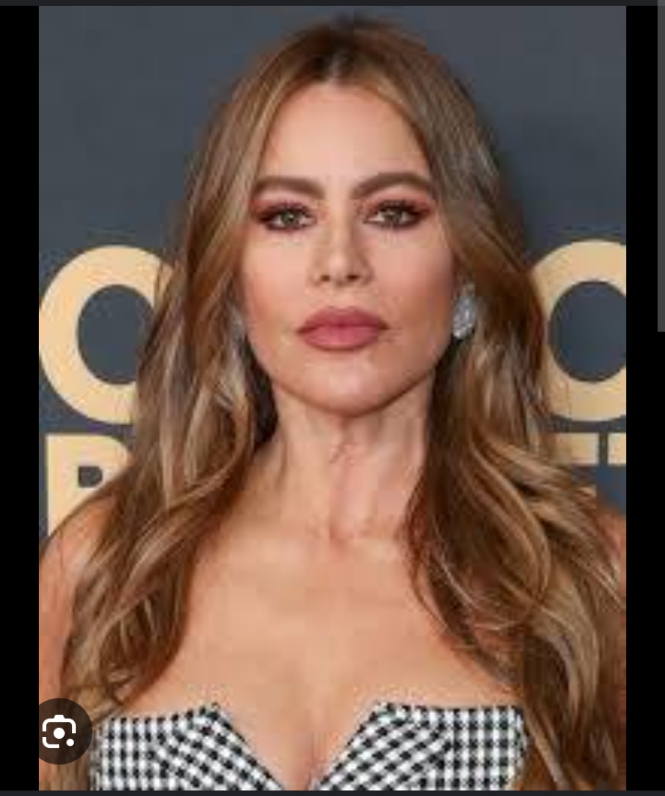CELEBRITY
EXCLUSIVE’They’re not frozen embryos, they’re my daughters Emma and Isabella!’: When Sofia Vergara was with her millionaire ex-fiance, they tried to start an IVF family. Years after they split – despite her vehement objection – he wants them to be born

Sofia Vergara’s divorce was finalised last week, in relatively straightforward fashion.
The star of Modern Family and Griselda — who is one of the highest paid actresses in the world — split from husband Joe Manganiello last year, after seven years of marriage. Divorce proceedings were concluded ‘amicably’, with Joe getting custody of the couple’s chihuahua-pom Bubbles.
It helped, of course, that there were no children involved.
In an interview, Sofia admitted that the will-we-won’t-we question of babies contributed to the break-up.
My husband was younger; he wanted to have kids and I didn’t want to be an old mum,’ she said, candidly
Sofia, 51, already has a son, 32-year-old Manolo, from a previous marriage, and admitted that she was thinking more about becoming a grandmother than a mother again. What woman, in her position, wouldn’t sympathise?
One man, however, has a very different — and rather startling — take on what the change in Sofia’s circumstances might mean, both for her, for him and for the children they both once wanted.
Between her two marriages, Sofia was in a relationship with Nick Loeb, an American businessman and actor, and a scion of the famous banking family which started Lehman Brothers.
He was a younger man too — ten years her junior — but the couple were together for around four years from 2010, got engaged and planned a family. They underwent IVF, creating four embryos. Two were implanted in a surrogate, but no pregnancy resulted.
The remaining two? This is where it gets messy.
They still exist, having long survived the relationship of the couple who created them.
These embryos are effectively frozen in time, cryopreserved in a clinic in California — and Nick still wants to use them, even if his famous ex unequivocally does not.
Not that Nick refers to them as ’embryos’. To him, they are more often ‘my children’, ‘my daughters’.
From time to time during this interview, he uses their names, Emma and Isabella, which he says the couple agreed upon during their fertility treatment.
‘They are ancestral names. I’m very big into genealogy and I have an eclectic ancestry,’ he tells me. ‘I’m a quarter British, but I also have Spanish, Danish and German ancestry.’
Who publicly names an embryo? Perhaps the same sort of person who sets up a trust fund for children who do not yet exist. And the sort who reacts to the simple question of whether you can actually have a relationship with an embryo with horror.
‘What are you talking about?’ he says. ‘People have relationships with embryos all the time. Every time a woman gets pregnant, she and her husband start building a relationship with that child, even at embryonic stages. What’s the difference whether those embryos are implanted or in cryopreserve?’
For an astonishing ten years now, Nick, an anti-abortion activist, has continued to fight for the right to gain custody of these embryos and to raise the children they could become.
It has been an extraordinary battle, raising serious legal and ethical questions but also — by dint of Sofia’s celebrity status — seeming like a particularly outlandish soap opera storyline.
However Nick’s continued insistence that his embryos are children seems less outlandish when you consider the new front in the U.S. battle over reproductive rights that was opened up in the States this week when Alabama Supreme Court ruled that frozen embryos should be considered children.
The ruling, delivered after a wrongful death lawsuit involved embryos that were lost at a fertility clinic in 2020, sent shockwaves across the States and led to Alabama’s largest hospital suspending some of its IVF services, over fears the questions of the rights of frozen embryos could expose them to criminal prosecution.
Some potential parents are now caught in the hellish situation of investigating whether they can move their embryos to different states.
Pro-life activists — Nick among them — are watching this ruling closely. The question of when an embryo or foetus is legally considered a person is at the heart of his fight, too.
My embryos are in California, a state that doesn’t recognise them as human persons, but if the U.S. Supreme Court takes this up, it will have larger implications than for just IVF,’ he says.
Until now, every court has denied Nick the ‘right’ he feels he has — which effectively is to force biological motherhood on a woman who no longer wants it.






